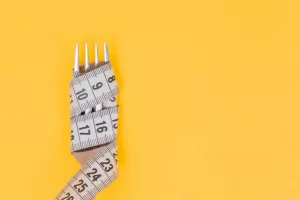 Do not be afraid that intermittent fasting is a very difficult process that not everyone can withstand. All you need is a little willpower and perseverance.
Do not be afraid that intermittent fasting is a very difficult process that not everyone can withstand. All you need is a little willpower and perseverance.
There are several ways not only to lose excess weight but also to improve the health of the body at the same time. Short-term and intermittent fasting is one of them.
The word fasting in no case should scare you or create in your imagination images of great sacrifice, suffering, and a strong feeling of hunger. Short-term fasting involves making temporary changes to the diet so that the digestive system can take a break from its usual rhythm.
Intermittent fasting is not a diet
This method of losing weight has nothing to do with the usual refusal of food. You won’t have to count calories or suffer from constant hunger pangs.
First of all, short-term fasting is the introduction of certain changes to the diet, the main purpose of which is to reduce portions and get the body used to proper and healthy food. In this way, you will learn to maintain a stable weight and get rid of food addiction.
Short-term fasting involves increasing the interval between meals. It is easiest to increase the interval between the last meal (dinner) and the first (breakfast). In this way, you will help the body to rest better and absorb food more efficiently. This practice is incredibly effective for those who want to lose excess weight.
What regimen should be followed during fasting?
Some nutritionists advise skipping breakfast or dinner. This option is suitable for you only if you can skip one meal without feeling excessively hungry. Please note that this style of eating should be temporary, you should not abuse fasting.
If you want to try short-term fasting for the first time, we advise you to follow this regime:
- Breakfast – 9 am
- Lunch – 2 pm
- Dinner – until 9 pm
We are sure that most of you have just found out that you have intuitively followed such a fast from time to time without even realizing it. However, some people make serious mistakes by having dinner too late or overeating at night.
If you follow our proposed diet, you will starve for exactly 12 hours.
For those who have successfully practiced 12-hour fasting several times, we offer a more complex diet:
- Breakfast – 11 am
- Lunch is at 3 pm
- Dinner – until 7 pm
With the help of this diet, you will be able to check whether your body tolerates a 16-hour fast. Believe it or not, the earlier you eat dinner, the less hungry you will be in the morning.
If you want to extend the break between meals to 18 hours, you can combine breakfast with lunch or lunch with dinner.
How to fast properly?
The main purpose of short-term fasting is to learn how to eat properly and use only healthy and low-calorie foods after it. We advise you to choose nutritious and satisfying food and to exclude from your diet harmful snacks that do not have any nutritional value.
Foods recommended for use during short-term fasting:
- Cold-pressed vegetable oils of the highest grade (coconut, olive, sesame, etc.)
- Beans
- Eggs
- Nuts
- Seed
- Avocado
- Oat groats
- Buckwheat
- Quinoa
Foods that are better to exclude from your diet during fasting:
- Refined flour products (bakery, crackers, and wheat bread)
- Refined sugar
- Ice cream and other dairy desserts
- Fried dishes
- Meat products (sausage, ham)
- Semi-finished products
- Carbonated sweet waters and packaged juices
- Harmful snacks (chips, crackers)
Useful tips for short-term fasting:
- Drink plenty of water throughout the day. Do not forget that water should not be drunk during meals, but between main meals. Very often, a person confuses the feeling of hunger with a banal violation of the water balance in the body. If you want to eat, drink a glass of water.
- Do not tolerate the feeling of hunger if it becomes unbearable. If you are hungry, have a snack. The main thing is not to abuse harmful snacks, and to choose healthy foods.
- You can’t eat solid food during fasting, but you can safely drink herbal teas.
Chew your food thoroughly and enjoy your meal. Try to make certain changes to the menu to make the diet more varied and interesting. For example, try a few new recipes and learn to enjoy the process of cooking. - You should not fast on days when you have a lot of work, when you have to drive all day, or if you have important things waiting for you that requires your full attention and concentration.
By regularly practicing fasting, you will feel a strong motivation to continue working on your own body. Each time, fasting will be easier and easier, and you will get real pleasure from this process, and not suffer.
Picture Credit: Unsplash
